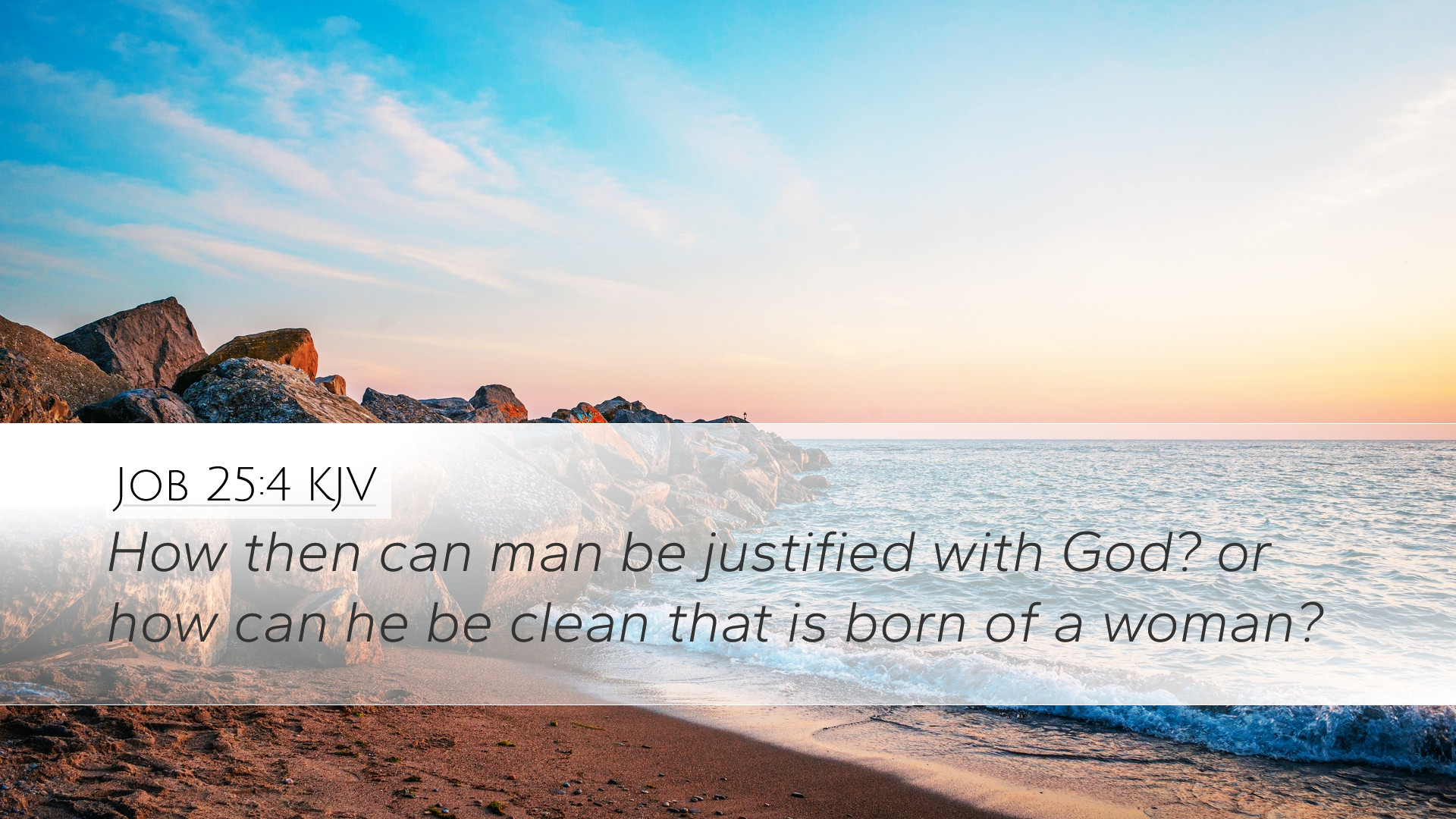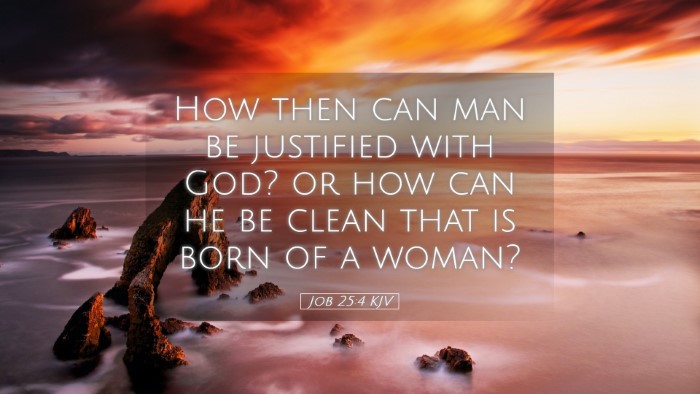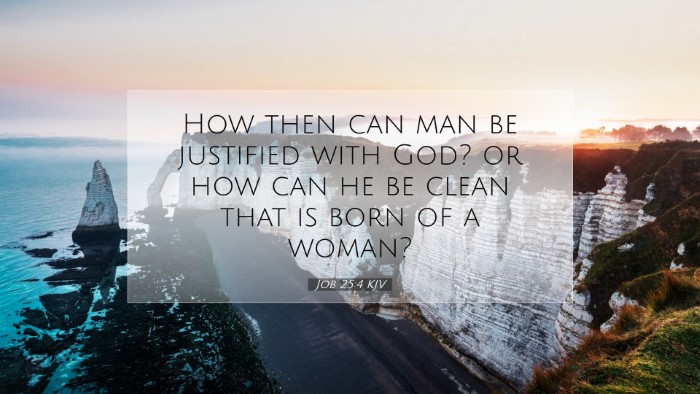Old Testament
Genesis Exodus Leviticus Numbers Deuteronomy Joshua Judges Ruth 1 Samuel 2 Samuel 1 Kings 2 Kings 1 Chronicles 2 Chronicles Ezra Nehemiah Esther Job Psalms Proverbs Ecclesiastes Song of Solomon Isaiah Jeremiah Lamentations Ezekiel Daniel Hosea Joel Amos Obadiah Jonah Micah Nahum Habakkuk Zephaniah Haggai Zechariah MalachiJob 25:4
Job 25:4 KJV
How then can man be justified with God? or how can he be clean that is born of a woman?
Job 25:4 Bible Commentary
Commentary on Job 25:4
Job 25:4 (KJV): "How then can man be justified with God? or how can he be clean that is born of a woman?"
Introduction
The verse from Job 25:4 presents a profound theological query regarding the nature of humanity's standing before God. This verse, posed by Bildad the Shuhite, raises essential questions about justification and purity in light of God's majesty and holiness. This commentary seeks to synthesize insights from public domain commentaries by Matthew Henry, Albert Barnes, and Adam Clarke, offering depth for scholars, pastors, and students of Scripture.
Contextual Background
In the Book of Job, we witness a profound exploration of suffering, divine justice, and human righteousness. Bildad’s statements in this chapter emerge from his discourse with Job, focusing on the character of God and the nature of humanity. Bildad, representing a theological framework that emphasizes retributive justice, believes that human beings, being inherently sinful, are unable to stand justified before a holy God.
Interpretation and Theological Implications
1. The Nature of Justification
Bildad’s rhetorical question, "How then can man be justified with God?" echoes a central theme of biblical theology: the relationship between God’s holiness and human sinfulness. As Matthew Henry notes, it reflects the impossibility of a sinful man achieving righteousness before an all-holy God. The implication is clear: without divine intervention, humanity stands condemned.
2. The Universal Condition of Humanity
Albert Barnes elaborates on the phrase "how can he be clean that is born of a woman?" by emphasizing the universal taint of sin upon all human beings. This aligns with the broader biblical narrative found in Romans 3:23, where Paul declares, "for all have sinned and fall short of the glory of God." This establishes that every person, irrespective of their inherent potential for good, is inherently flawed and incapable of achieving justification on their own.
3. The Majesty of God
In further exploration, Adam Clarke reflects on the majesty and omnipotence of God as a backdrop to this verse. He argues that the sheer greatness of God elevates the question of human worthiness. The existential crisis presented by Job and his friends is one where the vast gulf between the Creator and creation is underscored. This stark contrast leads to contemplation regarding how a man, characterized by frailty, can possibly attain a state of purity required by God's holiness.
The Doctrine of Grace
While Bildad's perspective is limited to the understanding of retributive justice, it is crucial to recognize that the entirety of Scripture provides a fuller picture of God's redemptive plan. The Old Testament sacrificial system points toward a future perfect sacrifice, ultimately fulfilled in Jesus Christ. As theologians would argue, it is through Christ’s atonement that humankind is enabled to be justified before God. Thus, the question posed by Bildad finds its answer in Christ, who makes clean those born of women.
Conclusion
Job 25:4 challenges readers to confront the issues of human sinfulness and the holiness of God. The combined insights from Henry, Barnes, and Clarke elucidate the profound spiritual truths embedded in this verse, inviting theological reflection on justification, humanity's condition, and the grace of God. As such, this passage serves not only as a moment of despair for Job but also as a prelude to the hope found in redemptive history—emphasizing the need for divine grace and the truth that through faith in Christ, the believer is justified and cleansed.


